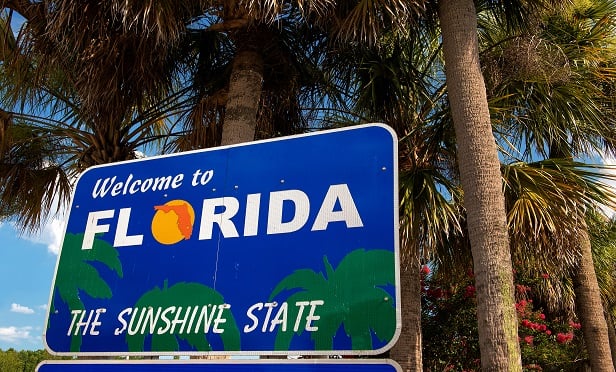Features

Impact and Cost of the ‘Overcriminalization’ of Individuals
The financial and human cost on individuals of arguable “overcriminalization” is enormous, and defense counsel certainly wonder whether that damage can be justified in light of the ultimate legal outcomes of the white-collar dramas we witness.
Features

AI and Privacy: Mitigating Legal Risk and Liability
The continued, rapid advancement of artificial intelligence technologies comes with increasing risks for businesses, demanding that they navigate such issues more carefully than ever. Considering recent privacy class action trends detailed in this article, companies that utilize AI in their business operations should immediately review and modify their compliance programs as necessary to mitigate legal risk and liability exposure.
Features

WTF? Round Two: The Federal Circuit Grants Brunetti (and Trademark Owners) a Reprieve
In August, the Federal Circuit issued a surprisingly self-critical ruling in the long-standing dispute between Erik Brunetti and the USPTO over Brunetti’s efforts to register the term F*CK for a wide variety of goods and services. The Federal Circuit concluded that the Board’s decision in In re Brunett lacked sufficient clarity and therefore vacated it for further proceedings, which although facially unremarkable, may not only prove to be a boon to Brunetti, it may also be highly beneficial to many trademark owners who have been forced to wrestle with failure-to-function refusals.
Features

Federal Judge Grants Preliminary Approval of Anthropic’s $1.5 Billion Settlement In Copyright Case
A federal judge in the Northern District of California granted preliminary approval on September 25 to a $1.5 billion settlement between Anthropic and a class of authors who alleged that the artificial intelligence company used their copyrighted works to train its chatbot Claude without their consent. The settlement is the largest copyright settlement of all time, covering 482,460 works and paying authors slightly more than $3,000 per work infringed.
Features

The Balancing Act: Tracking Technology Trends and Risk Mitigation Techniques
U.S. companies face a massive wave of wiretapping law class action lawsuits and regulatory enforcement actions over online “tracking technologies.” With this backdrop, the article below identifies some trends and new directions concerning tracking technology legal exposure and highlights some potential solutions for mitigating legal impact.
Features

The Rise of ‘Settled Expectations’ In USPTO Review and the Fallout for Patent Owners and Challengers
The landscape for discretionary denials at PTAB is evolving quickly; both patent challengers and owners must adapt their strategies to ensure they are not left behind by the USPTO’s new approach.
Features

Parameters of Legal Relationship Between Co-Lenders for Film Production
An “agreement between lenders” (ABL) to help co-fund a film production is a common vehicle for sharing financial risk. But what happens when a legal dispute arises between a film-production senior lender who has provided a larger loan amount than a junior lender who has loaned less?
Features

What Will Become of ‘Schedule A’ Complaints In Counterfeit Goods Litigations?
Many companies have been participating in the growing trend of challenging counterfeit products of their goods by filing “Schedule A” lawsuits. These suits are mass actions typically alleging intellectual property infringement and they allow plaintiffs to sue many defendants at once, with the defendants’ names grouped in a “Schedule A” appendix attached to the complaint.
Features

Florida’s Elimination of Sales Tax On Commercial Real Estate Leases Changes Landscape
Florida House Bill 7031, eliminating the state’s sales tax on commercial real estate leases beginning Oct. 1, 2025. This long-awaited and sweeping reform ends Florida’s reign as the only state in the nation to impose such a tax and marks a sea change in the state’s commercial leasing landscape.
Features

Sale-Leaseback Transactions: Structure, Advantages, Risks and Legal Considerations
In today’s economic landscape, many businesses are turning to alternative financing models to access liquidity without disrupting operations. One such strategy — once a niche transaction type, now in the mainstream of real estate finance — is the sale-leaseback. This financial mechanism allows property owners to leverage real estate equity while continuing to occupy and operate their properties.
Need Help?
- Prefer an IP authenticated environment? Request a transition or call 800-756-8993.
- Need other assistance? email Customer Service or call 1-877-256-2472.
MOST POPULAR STORIES
- Use of Deferred Prosecution Agreements In White Collar InvestigationsThis article discusses the practical and policy reasons for the use of DPAs and NPAs in white-collar criminal investigations, and considers the NDAA's new reporting provision and its relationship with other efforts to enhance transparency in DOJ decision-making.Read More ›
- Challenges In Being a Pro Sports General CounselBeing a general counsel for a professional sports team is a coveted gig, but it's also a job with unique challenges, potential ethical minefields and scandals lurking around the front office, field, stadium and elsewhere.Read More ›
- The DOJ's Corporate Enforcement Policy: One Year LaterThe DOJ's Criminal Division issued three declinations since the issuance of the revised CEP a year ago. Review of these cases gives insight into DOJ's implementation of the new policy in practice.Read More ›
- The DOJ's New Parameters for Evaluating Corporate Compliance ProgramsThe parameters set forth in the DOJ's memorandum have implications not only for the government's evaluation of compliance programs in the context of criminal charging decisions, but also for how defense counsel structure their conference-room advocacy seeking declinations or lesser sanctions in both criminal and civil investigations.Read More ›
- Practice Tip: The Earning Capacity of Business OwnersThe owner of a business can claim as lost earning capacity in a personal-injury action only the working time lost due to injuries and harm to future earning capacity, not the business' alleged profits in perpetuity.Read More ›
